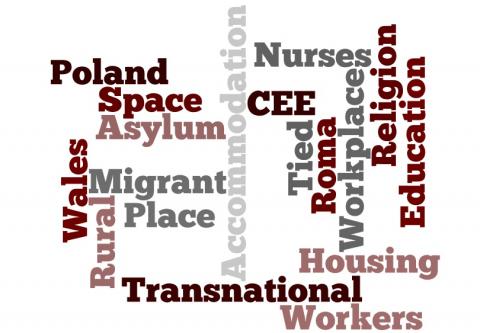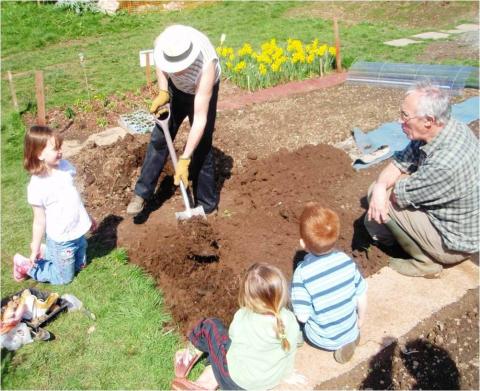Recent Research
Recently-completed Observatory research projects and reports include the following:
Older People and Place in Wales: Demography, policy and community
This project aimed to understand the effect of place on the welfare and wellbeing of older people and focused on the experiences of older people living in urban, costal, valley and rural parts of Wales.
The fourth in a series of longitudinal reports that present findings from extensive surveys of major aspects of rural Wales. This cohort of surveys follows on from earlier ones in 2004 and 2007 and was carried out with the underlying rationale that the surveys would complement and build on earlier WRO work; would draw on the earlier surveys and provide longitudinal data; and provide a rich data source for future WRO work.
An Analysis of the Socio-Economic Impact of CAP Reforms on Rural Wales: Phase 1 and 2 Report
An Analysis of the Socio-Economic Impact of CAP Reforms on Rural Wales: Phase 3, 4 and 5 Report
An Analysis of the Socio-Economic Impact of CAP Reforms on Rural Wales: Phase 6 Report
This was a multi-phase project with a focus on how the forecast post-2013 CAP reforms might affect farm household incomes and how decisions that farm households make in response to changed incomes might, in turn, affect farm support services, and the food processing and retailing industries. It further considered, in general, what the knock-on effects might be on rural society and the economy in rural Wales. The project had six phases. First, the Welsh Government produced an income analysis, which sets out the cash impact of predicted changes to CAP. Second, there was a survey of farming households. There were two parts to the survey: a main survey of 2,400 farms across all of Wales, and over-sampling with 200 interviews in three discrete geographical areas. Phases 3, 4 and 5 explored the effects of CAP reform on the farm support service industry, the food processing and retail industries, and rural society and economy respectively. Finally, phase 6 analyzed themes and implications for Welsh Government policies and interventions.
The Pontbren Project: The Farmers' Experiences and Lessons Learnt
The WRO's Pontbren research programme drew on the farmers' experiences of the Pontbren Project to learn lessons to inform future policy programmes - to ensure that the examples of best-practise evident in Ponbren can be supported in other locations across Wales. Pontbren is an important example of land-use where multiple benefits have been achieved in synergy in one locale - for environmental gain through flood allievation and promoting habitat restoration and socio-economic gains from sustainable farming practise.
Migrant Workers in Rural Wales and the South Wales Valleys
This project examined the impact of international migration through an analysis of temporal patterns of migration and geographical patterns of employment and residence. Building on WRO’s previous work on ‘Central and Eastern European Migrant Workers in rural Wales’ (WRO 2008), the project extended the focus of inquiry beyond migrant workers from EU accession states. Methods: The project a dopted a mixed method approach, using qualitative methods to compliment statistical analyses of migrant numbers and a migrant workers survey. An initial scoping phase involved a review of the academic literature on international migration, exploratory work on diverse migrant communities, and interviews with key stakeholders. This was followed by the collation, analysis and mapping of statistics, including 2001 and 2011 census data (when released), on migrant numbers. Interviews with key stakeholders and a sample of international migrants were undertaken and the 2007 survey of migrant workers was replicated and extended. Studies of specific initiatives aimed at assisting or integrating international migrants, businesses set up by international migrants, and cultural activities initiated by or aimed at international migrants were conducted. Spatial Scale: Case studies in rural/ semi rural Wales plus Valleys.
dopted a mixed method approach, using qualitative methods to compliment statistical analyses of migrant numbers and a migrant workers survey. An initial scoping phase involved a review of the academic literature on international migration, exploratory work on diverse migrant communities, and interviews with key stakeholders. This was followed by the collation, analysis and mapping of statistics, including 2001 and 2011 census data (when released), on migrant numbers. Interviews with key stakeholders and a sample of international migrants were undertaken and the 2007 survey of migrant workers was replicated and extended. Studies of specific initiatives aimed at assisting or integrating international migrants, businesses set up by international migrants, and cultural activities initiated by or aimed at international migrants were conducted. Spatial Scale: Case studies in rural/ semi rural Wales plus Valleys.
Knowledge Transfer and Innovation
This project investigated how Wales can use its existing networks and structures, as well as accessing new ones, to take advantage of the Innovation agenda. In particular it sought to address the opportunities which will be offered by the RDP Regulations 2014-2020 in respect of Knowledge Transfer, Co-operation and the European Innovation Partnership (EIP) in the next Rural Development Plan.
Background
There are many example of Knowledge Transfer operating in Wales over a multitude of sectors and institutions. This ranges from Welsh Government BETS support to assist academia in the development and mainstreaming of processes to support business growth to Farming Connect, with aims to assist in the increase of efficiency and skill base within the agricultural industry. Due to the range of activity related to Knowledge Transfer in Wales and the importance of it within the next Rural Development Plan 2014 – 2020 it is essential for us to gauge its effectiveness and determine where activity can be enhanced and developed to take forward within the next programme period.
The European Innovation Partnership (EIP) on "Agricultural Productivity and Sustainability" for the period from 2014-2020 aims to address probably the two most fundamental challenges faced by European agriculture in the early 21st century – how to increase production and productivity in order to respond to the significant growth in global food demand; and how to improve sustainability and resource efficiency and address environmental issues such as biodiversity loss.
In broad terms the EIP aims to foster a competitive and sustainable agriculture and forestry that ‘achieves more from less’ inputs and works in harmony with the environment. To achieve this aim the EIP needs to build bridges between research and practice. The EIP will be the catalyst towards and agriculture based on knowledge and the EIP network will help to foster co-operation and communication between science and practice. The scope of the EIP will be very broad: innovation may relate to technology, practices or forms of organisation (including social organisation). The European Commission will establish an EIP Network to facilitate communication and exchange on innovation-related information, research results, practice needs, lessons learned, etc.
Aim
The project’s purpose was to map out the sources of support for Knowledge Transfer, Innovation and EIP type interventions in Wales, be that at Wales, UK or EU levels. The project also provided recommendations to inform the Welsh Government’s work in developing a new Rural Development Plan for Wales for 2014-20.
Objectives
The project’s objectives were:
1. to map existing institutions, public and private organisations and programmes with a relevance to Knowledge Transfer, Innovation and EIP at Wales, UK and EU levels linked to the six priorities of the 2014-2020 RDP Regulation;
2. to determine how the above are currently involved in stimulating innovation relevant to the RDP, their capacity and level of success.
3. to make recommendations for the KT, Innovation and EIP elements of the future RDP programme.
Click here to download the Report.
Rural Household, Rural Services and Rural Business Surveys
The third in a series of longitudinal reports that present findings from extensive surveys of major aspects of rural Wales. This cohort of surveys follows on from earlier ones in 2004 and 2007 and was carried out with the underlying rationale that the surveys would complement and build on earlier WRO work; would draw on the earlier surveys and provide longitudinal data; and provide a rich data source for future WRO work.
This research addresses the question of farmers’ decision-making in order to inform agri-environment  and other rural policy mechanisms, which target the delivery of ecosystem goods and services. In particular, this work is designed to inform the delivery of Wales’ Natural Environment Framework and Rural Development Plan, along with the planning of CAP reform and future agricultural policy measures to improve the resilience and sustainability of farming in Wales.
and other rural policy mechanisms, which target the delivery of ecosystem goods and services. In particular, this work is designed to inform the delivery of Wales’ Natural Environment Framework and Rural Development Plan, along with the planning of CAP reform and future agricultural policy measures to improve the resilience and sustainability of farming in Wales.
Methods: Mixed Methods 60 semi-structured interviews with farmers and key stakeholders & secondary quantitative data from WRO Farm Household Survey and IBERS Farm Business Surveys.
Spatial Scale: quantitative data nationally representative of Wales; interview sample national in scope and chosen on the basis of farm size (ESU) to provide a broadly representative sample (although not statistically significant); interviews were also conducted with case study groups where ecosystem services delivery was being pioneered.
Themes: Rural Economy and Employment, Environment, Sustainability and Land-use Planning.
Click here to donwload the report.
In 2010 the Welsh Government commissioned the Wales Rural Observatory to undertake a review to identify what could be done to promote and encourage ‘Community Growing’ in Wales. The research provided an in-depth examination of current activities relating to the production and distribution of ‘community grown food’ in Wales, focusing specifically on four areas of activity, namely Community Supported Agriculture [CSA], community gardens, allotment gardening and activities relating to communal food growing in schools. As well as highlighting existing best practice, the research sought to identify existing barriers to the adoption of community grown food activities, drawing on detailed analyses of interview and survey data.
identify what could be done to promote and encourage ‘Community Growing’ in Wales. The research provided an in-depth examination of current activities relating to the production and distribution of ‘community grown food’ in Wales, focusing specifically on four areas of activity, namely Community Supported Agriculture [CSA], community gardens, allotment gardening and activities relating to communal food growing in schools. As well as highlighting existing best practice, the research sought to identify existing barriers to the adoption of community grown food activities, drawing on detailed analyses of interview and survey data.
Methods: There were five phases of research undertaken during the course of this project. First, interviews were conducted with the key stakeholders and Welsh Government officers who constituted the Community Grown Food Task and Finish Group, and with representatives of local authorities in Wales. The first phase also involved a desk-based review of any completed and ongoing community growing activities supported under the Rural Development Plan for Wales (RDP) 2007-2013. Second, a comprehensive survey of all known community growing projects in Wales was undertaken. Third, and following on from the survey, 20 community growing projects were selected for further in-depth examination. As part of this in-depth case study work, a series of interviews was also undertaken with representatives of national community growing organisations in England and Scotland to provide comparative data and examples of best practice in community growing elsewhere in the UK. Fourth, a comprehensive examination of existing levels of communal food growing in schools was undertaken by means of a questionnaire survey to all schools in Wales. Finally, a focus group was conducted with members of the Task and Finish Group and a series of workshop discussions undertaken with representatives of community growing projects across Wales.
Spatial Scale: All-Wales
Themes: Allotments, Community Gardens, CSA, School Gardening, Local food, Health and Well-being, Sustainability.
Click here to download the report.




